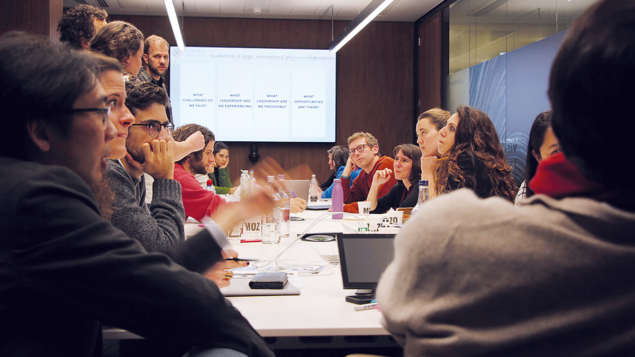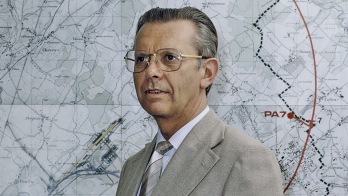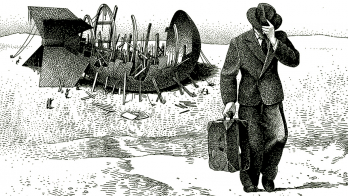Gabriel Facini describes a new programme developed in partnership with industry to help particle physicists become effective leaders in large collaborations.

Are we at the vanguard of every facet of our field? In our quest for knowledge, physicists have charted nebulae, quantified quarks and built instruments and machines at the edge of technology. Yet, there is a frontier that remains less explored: leadership. As a field, particle physics has only just begun to navigate the complexities of guiding our brightest minds.
Large-experiment collaborations such as those at the LHC achieve remarkable feats. Indeed, social scientists have praised our ability to coordinate thousands of researchers with limited “power” while retaining individual independence. Similarly, as we continuously optimise experiments for performance and quality, and there also exist opportunities to refine behaviours and practices to facilitate progress and collective success.
A voice for all
Hierarchies in any organisation can inadvertently become a barrier rather than a facilitator of open idea exchange. Often, decision-making is confined to higher levels, reducing the agency of those implementing actions and leading to disconnects in roles and responsibilities. Excellence in physics doesn’t guarantee the interpersonal skills that are essential for inspiring teams. Moreover, imposter syndrome infects us all, especially junior collaborators who may lack soft-skills training. While striving for diversity we sometimes overlook the need to embrace different personality types, which, for example, can make large meetings daunting for the less outspoken. Good leadership can help navigate these challenges, ensuring that every voice contributes to our collective progress.
Leadership is not management (using resources to get a particular job done), nor is it rank (merely a line on a CV). It is guidance and influence of others towards a shared vision – a pivotal force as essential as any tool in our research arsenal. Good leadership is a combination of strategic foresight, emotional intelligence and adaptive communication; it creates an inclusive environment where individual contributions are not commanded but empowered. These practices would improve any collaboration. In large physics experiments this type of leadership is incidental instead of being broadly acknowledged and pursued.
Luckily, leadership is a skill that can be taught and developed through training. True training is a craft and is best delivered by experts who are not just versed in theory but are also skilled practitioners. Launched in autumn 2023 based on the innovative training approach of Resilient Leaders Elements, a new course “Leading in Collaborations” is tailored specifically for our community. The three-month expert-facilitated course includes four half-day workshops and two one-hour clinics, addressing two main themes: “what I do”, which equips participants with decision-making skills to set clear goals and navigate the path to achieving them; and “who I am”, which encourages participants to channel their emotions positively and motivate both themselves and others effectively. The course confronts participants with the question “What is leadership in a large physics collaboration?” and provides a new framework of concepts. Through self-assessment, peer-feedback sessions, individualised challenges and buddy-coaching, participants are able to identify blind spots and hidden talents. A final assessment shows measurable change in each skill.
The first cohort of 20 participants, displaying a diverse mix of physics experience from various institutions and nationalities, was welcomed to the programme at University College London on 14 and 15 November 2023. More than half of the participants were women – in line with the programme’s aim to ensure that those often overshadowed are given the visibility and support to become more impactful leaders. The lead facilitator, Chris Russell, masterfully connected with the audience via his technical physics background and proceeded to build trust and impart knowledge in an open and supportive atmosphere. When discussing leadership, the initial examples given cited military and political figures; reframing led to a participant’s description of a conductor giving their orchestra space to play through an often-rehearsed tough section as an example of great leadership.
Crucial catalyst
Building on the experience of the first cohort, the aim is to offer the programme more broadly so that we can encourage common practice and change the culture of leadership in large collaborations. Given that the LHC hosts the largest collaborations in physics, the programme also hopes to find a home within CERN’s learning and development portfolio.
The Leading in Collaborations programme is a crucial catalyst in the endeavour to ensure that our precious resources are wielded with precision and purpose, and thus to amplify our collective capacity for discovery. Join the leadership revolution by being the leader you wish you had, no matter your rank. Together, we will become the cultural vanguard!








